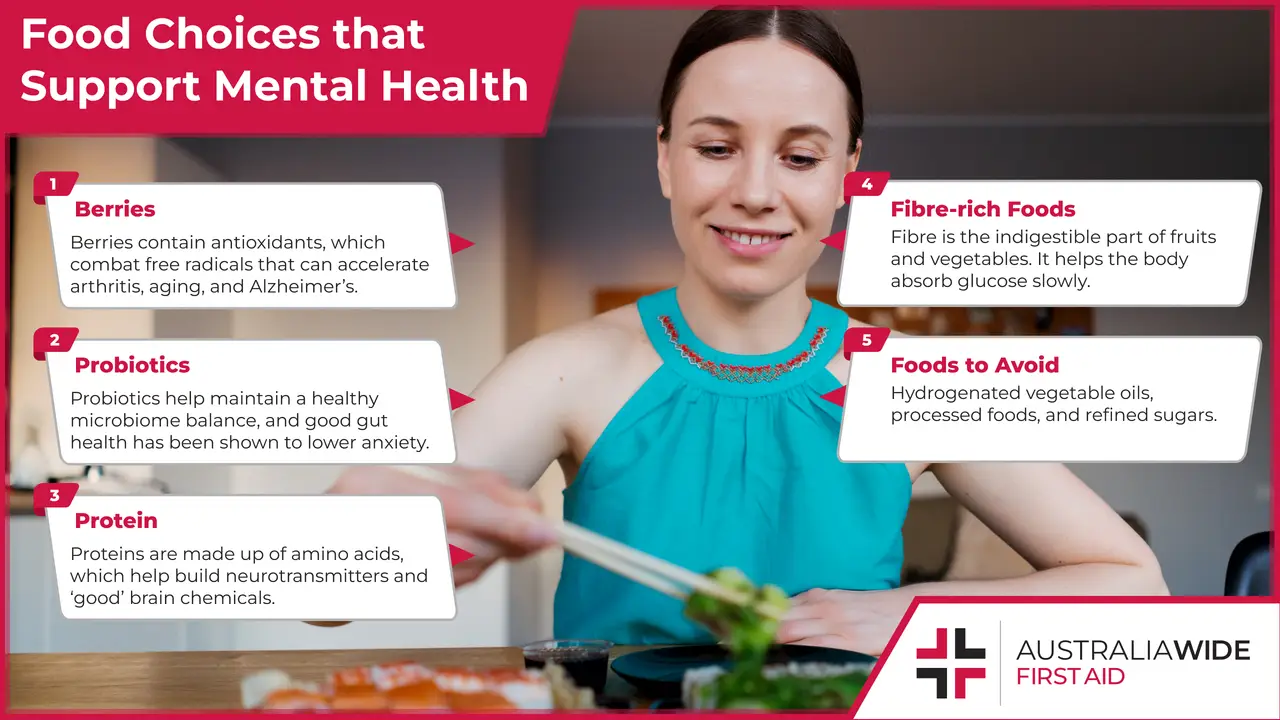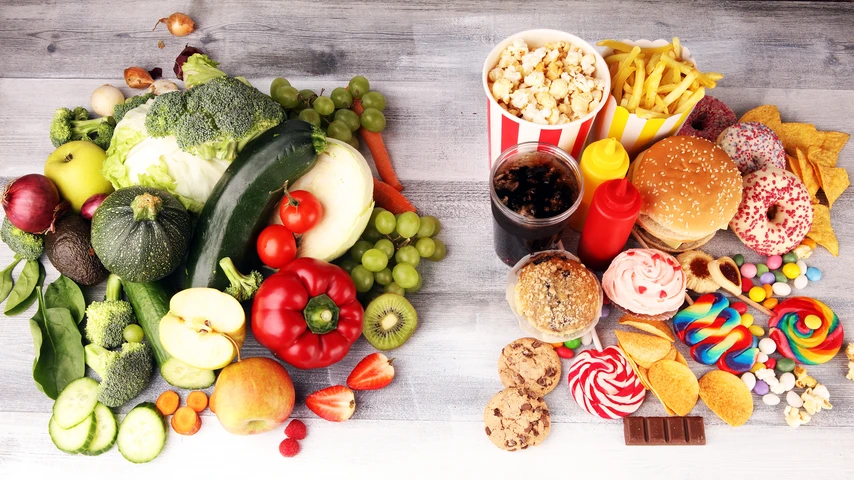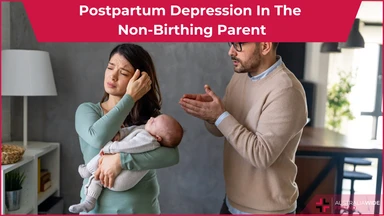Understanding Nutrition, Depression and Mental Illnesses


Being overweight or obese contributes to mental health disorders. 67% of Australian adults suffering from a mental condition were overweight and 31% were obese.
Good food supports the growth of good bacteria in the gut, producing more positive neurotransmitter signals to the brain, improving mental health. Processed food and refined sugars reduce neurotransmitter production and cause mood fluctuations.
Today, we are going to look at foods that can help improve your mental health. That way, you can eat your way to good overall wellbeing.
What we eat affects our mental health. Eat well to feel well.
Some factors that influence our mental health include changes in glucose (sugar) levels in the blood, inflammation and effects on the microorganisms living in the gut. These gut bacteria are vital in the production of neurotransmitters, chemical messengers that carry messages from the gut to the brain.
The brain consumes 20% of the total daily energy requirements. When we choose nutritious food, we provide our body and brain with the essential nutrients that promote the growth of good bacteria in the gut which produces positive neurotransmitter signals to the brain, making us feel good and relaxed. On the other hand, junk food causes inflammation and reduces neurotransmitter production. Sugar especially causes mood fluctuations.
Eating healthy prevents chronic diseases, for instance, diabetes, which also affects mental health. Additionally, it is important to keep your weight in check since being overweight or obese can contribute to mental health disorders. 45% of Australians experience a mental health illness at some point in their lives. 67% of Australian adults suffering from a mental condition were overweight and 31% were obese.
Two of the three most common mental illnesses experienced by Australian adults are anxiety and mood disorders such as depression. Every year, 1 million Australians have depression and an estimated 2 million have anxiety. Studies have shown that people with depression have abnormal levels of the neurotransmitters, serotonin and dopamine in their brains. The food you eat affects the level of neurotransmitter chemicals in your brain and how your brain functions.
One way to regulate mood and avoid anxiety and depression is to eat food that increases positive neurotransmitter signals in the brain. Here is a list of foods that improve your mental health:
Berries contain antioxidants that combat free radicals that cause inflammation of the joints (arthritis), accelerate aging, trigger some cancers by damaging cell DNA and damage nerve cells in the brain, causing Alzheimer’s disease.
Antioxidants work by neutralising the free radicals, stopping them.
Having more antioxidants in your diet decreases the risk of many diseases. Berries also increase the dopamine levels in the brain, improving memory, mood and sleep.
Other sources of antioxidants include:
For a healthy body and mind, looking after your gut and the good bacteria inside is necessary.
One way to keep a healthy microbiome balance in the gut is through the help of probiotics. Probiotics are good bacteria and microbes that fight bad bacteria in the gut and when ingested, help restore the good bacteria, maintaining a healthy balance.
The growth of good bacteria in the gut produces positive neurotransmitter signals to the brain, lowering stress and anxiety, improving mental health.
Sources of probiotics include:

Proteins are made up of amino acids which are the building blocks of many neurotransmitters or brain chemicals that influence our mood.
Protein-rich food increases dopamine and norepinephrine in the brain. They improve focus, mental concentration, motivation and mood. Ultimately, a positive effect on mental health.
Sources of protein include:
The indigestible part of fruits and vegetables contain fibre, which aids a healthy environment in the gut.
Fibre is the favourite food of the good bacteria and they help maintain a healthy balance of microbes in the gut.
The good bacteria produces positive neurotransmitter signals to the brain, improving mood and mental health. Since fibre helps the body absorb glucose or sugar slowly into the bloodstream, it helps to prevent a sugar rush and a crash.
Sources of fibre include:

Avoid or reduce consumption of food that harms your mental health. They include:
What we eat affects our mental health since it affects the level of neurotransmitter chemicals in our brains.
Look after your mental health by consuming more healthy food that increases positive neurotransmitter signals in the brain and less of those that contain hydrogenated vegetable oil and processed foods with refined sugars. Avoid feelings of anxiety and stress. Feel good and relaxed.
Learn CPR and provide First Aid with Australia Wide First Aid. Book a date today!

February 18, 2025
Mental health can be influenced by every aspect of our lives, and the weather is no exception. In places closer to the equator with humid environments, like Darwin here in Australia, the onset of monsoon season can see people suffer from a tropical seasonal affective disorder known as ‘mango madness’.

January 16, 2025
Mental health crises can occur unexpectedly, and knowing how to respond effectively can make a significant difference. The CARE framework is an easy-to-remember guide for offering support during a mental health crisis. It is also applicable if you think you might be seeing signs and symptoms of low mental health in a loved one, friend, or colleague.

June 3, 2024
New parents, both birthing and non-birthing, can develop postpartum depression. Birthing parents are easily recognized as being at risk for postpartum depression; however, it is important to acknowledge that non-birthing parents are equally susceptible to experiencing postpartum depression.